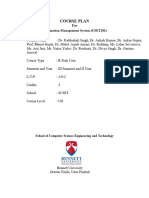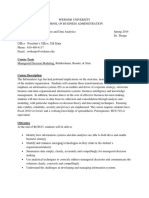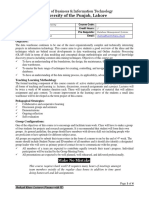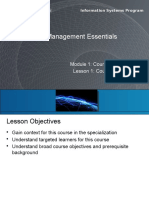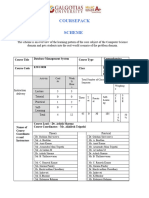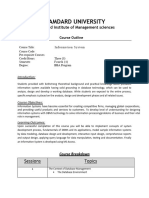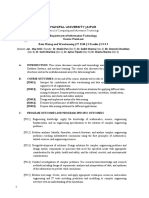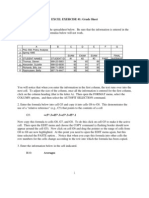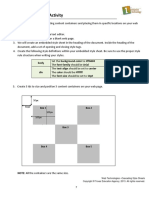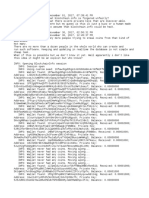0% found this document useful (0 votes)
118 views3 pagesInformation Management 2 Course Syllabus
The course 'Information Management 2' builds on foundational concepts from 'Information Management 1', focusing on advanced database techniques, business intelligence, and data analytics. Students will learn to optimize databases, design data warehouses, and utilize big data technologies, culminating in a capstone project. Assessment includes quizzes, laboratory exercises, and a capstone project, with a mix of theoretical and practical applications throughout the course schedule.
Uploaded by
Marvin ClutarioCopyright
© © All Rights Reserved
We take content rights seriously. If you suspect this is your content, claim it here.
Available Formats
Download as DOCX, PDF, TXT or read online on Scribd
0% found this document useful (0 votes)
118 views3 pagesInformation Management 2 Course Syllabus
The course 'Information Management 2' builds on foundational concepts from 'Information Management 1', focusing on advanced database techniques, business intelligence, and data analytics. Students will learn to optimize databases, design data warehouses, and utilize big data technologies, culminating in a capstone project. Assessment includes quizzes, laboratory exercises, and a capstone project, with a mix of theoretical and practical applications throughout the course schedule.
Uploaded by
Marvin ClutarioCopyright
© © All Rights Reserved
We take content rights seriously. If you suspect this is your content, claim it here.
Available Formats
Download as DOCX, PDF, TXT or read online on Scribd
/ 3




